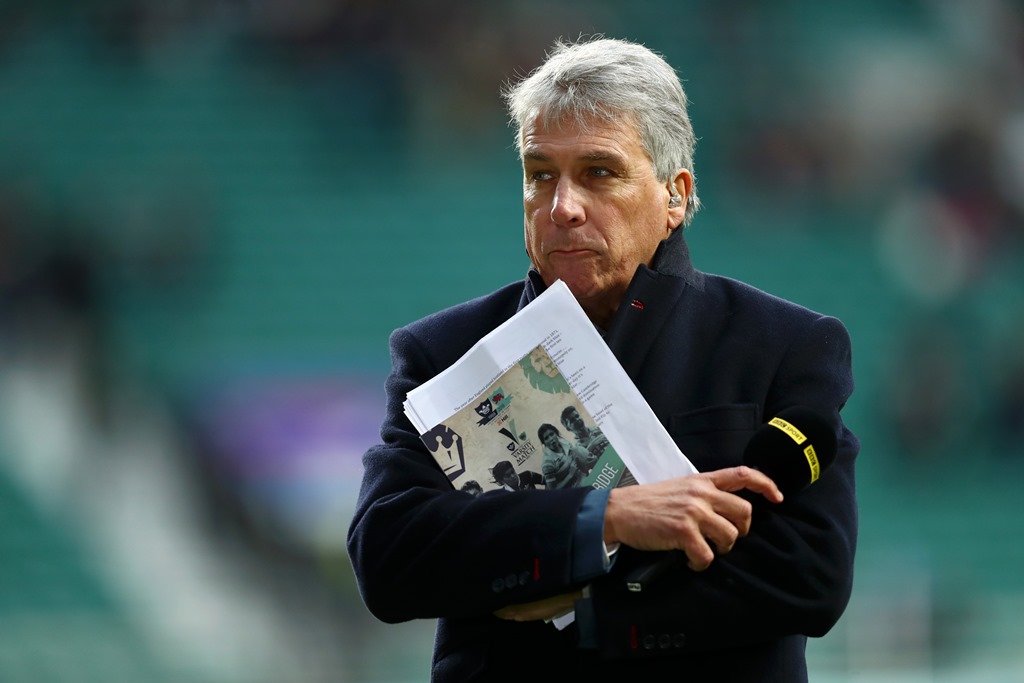
John Inverdale, star broadcaster and president of National Two Esher, has recently taken on the chairman’s role at the National Clubs Association, with a seat on the RFU Council. He tells NEALE HARVEY why he took the job and offers his views on rugby at this crucial juncture.
What persuaded you to take on the chairmanship of the NCA?
Becoming a proverbial ‘old fart’ had never really occurred to me, it was something older people did! But as time’s gone on and having been someone on the sidelines repeatedly passing uncomplimentary comment about the way the game was being run, you can write as many articles as you like or be on the TV and radio saying things, but until you’re in a position to actually do something about it you are just another voice in the wilderness.
When Norman Robertson, my predecessor, said, ‘Why don’t you give it a go?’, I thought it was the right time and I’m genuinely looking forward to it. It’s a big job, though, and even in my first week I’ve been on the phone incessantly.
Your immediate priority?
Getting the game restarted. The whole game is focussing on that but if I had one other wish for levels three and four, it would be for our leagues and clubs to achieve a greater profile among our local communities and beyond, which we’ve singularly failed to do in a decade and a half of open rugby.
The quality of rugby at these levels is so much higher than it was 20 years ago but we still have the huge problem that not enough people watch it. For example, on the ‘off’ Saturdays during the Six Nations, ten million people might have watched England v Wales the week before but why does it never occur to those viewers to go and watch a game just down the road at, say, Redruth, Tynedale, Sedgley Park or Canterbury? The quality of rugby is genuinely good, but how do we get people to understand that? I know so many people who watch rugby on TV and live within five miles of a National League club but never set foot in the place.
So, why is that?
One of the reasons, palpably, is that facilities at some of the clubs are simply not good enough and that has to be addressed as an absolute priority. The other thing is that people’s perception is the quality does not warrant their attention, but they’re wrong and we have to change that.
We need to persuade people of the warmth and friendliness of the welcome but also let them know that when they leave on a Saturday evening, they’ll have seen a damned good game and must go again.
How high are minimum ground standards on your agenda?
Collectively, we have to understand that however much money you’ve got in the pot to spend on your club, you can’t spend it all on players to the detriment of your facilities. I don’t have a problem with people spending money on players and you cannot turn the clock back because our players put a huge amount of commitment into making the game at levels three and four as good as it is, but you can’t pay players and then expect them to play on a cow pat of a pitch, with a clubhouse that’s sub-standard, in a ground without a grandstand, floodlights, covered accommodation or decent basic amenities like toilets or refreshment facilities.
If, as NCA, we’re serious about people taking us seriously, we have to be serious about the way we present our product on and off the field because the two are inextricably linked. It’s absurd that the RFU has never enforced minimum standards because the moment you start charging people £15 to come and watch, you are entering the world of sports entertainment and you simply cannot expect people to stand on a touchline in the pouring rain with no shelter – it’s just not good enough. That’s not treating the supporter with respect and it requires an absolute shift of mindset from everyone involved in the clubs and the wider game to appreciate that.
How important is finding a National League sponsor?
Very important and I find it extraordinary that there isn’t one because when you look at the geographical spread of the National Leagues – from Tynedale to Redruth or Westcliff to Fylde – it’s the most amazing marketing opportunity that covers virtually the whole of England.
I cannot believe there’s not a national company with local branches out there that could buy into 40-odd clubs and make it worth their while as sponsors. We’ll be trying to make that happen.
Wider afield, the game appears fractured from World Rugby, RFU and Premiership level down, so do you despair at the infighting?
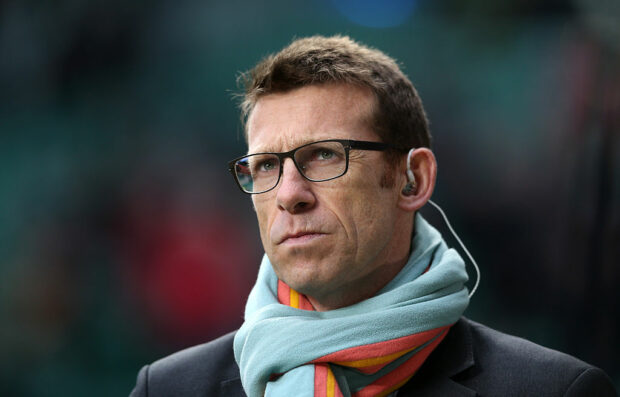
The biggest issue facing the game is people realising that rugby is a top down game – it’s predicated on the international game in the public’s eye. Professional clubs, community clubs, colleges, schools and mini rugby are all great, but, fundamentally, what is it that gives rugby it’s cache and presence in the mindset of people at large? It’s the internationals and we have to get the international calendar sorted so that everything cascades from that.
In 20 years I don’t see Bath v Toulouse being on a bigger scale than an international match and rugby is not football where the club game dominates, nor will it ever do because you just won’t see kids on the streets of Africa wearing the rugby jerseys of, say, Leicester or Wasps, as they do with Arsenal, Manchester United or Barcelona. So, let’s be realistic about club rugby, which is a brilliant product, but it’s the international game that gives rugby its global clout and let’s get that sorted first so that everything can feed off.
Part of me thinks wouldn’t it be wonderful if in the semi-finals of the World Cup in 2039 we had teams like Uruguay, Georgia, Chile, Samoa or Georgia genuinely competing with the rest. Rugby needs to move on, it needs teams like Russia, Romania and Spain to be strong and that for me is what will drive the game forward for the widest constituency of people. The sport has its core nations, but that does not mean they’ve always got to be at the top. We currently have a big opportunity to put in place a global calendar and structure where that vision has a grain of hope of happening and we must seize it.
Back to NCA, any clue on a post-Covid-19 restart?
One day I get optimistic about starting in October and the next day I think, ‘Crikey, we might not start until January!’ All I can say from an NCA perspective is that we will start as soon as we’re allowed, give people a six-week run-up to the first game and do our utmost to ensure the 2020/21 season has authenticity with champions and promotion and relegation. Once we get a tap on the shoulder to say when we can start, we can have fixtures out in a week.
Are you confident all your clubs will survive?
I’m not getting the impression any clubs will go under. A lot of clubs are able to weather this storm pretty well through being innovative, and their outgoings have been vastly reduced anyway so the majority of clubs have been able to suck it up. Quite how much money they’ll have at their disposal going forward is another matter but that’s where I’ll take you back to facilities because if you’ve taken a big hit, we have to create a better environment for this level of the game to grow.
The Adult Game Review is ongoing with proposals to reduce the National Leagues from 16 to 14 clubs with greater regionalisation in 2021/22. Your view?
Player welfare has been a driving force in reducing leagues from 16 to 14. An even bigger issue is adult male participation at the lower levels of the game because anecdotal evidence suggests travelling is one of the biggest factors in players stopping playing or playing intermittently.
We’ve got to try and get people to be regular attendees at 3pm on a Saturday and if that means there has to be greater regionalisation at the bottom end, that is fair enough if it keeps clubs vibrant and helps them run three teams where otherwise they might just run two.
When you climb up the pyramid, though, you need to understand that you’re going to have to travel a bit further and maybe we will get to the point where clubs will turn down promotion because they don’t want to travel three or four hours to away games. We just have to be flexible, there is no ‘one size fits all’ solution.
Do you hope National One remains exactly that – national – with a strong National Two underpinning it?
The whole point about the National Leagues is they should be aspirational. If you can say you’re a National League club, it should really mean something. I worked in Lincoln during the Eighties when Lincoln City dropped out of the Football League into non-league and there was wailing and gnashing of teeth – it was a complete disaster. Getting out of non-league football into the Football League is still seen as the Holy Grail and that’s what we have to create in rugby.
Getting into the National Leagues should be seen as a major achievement – and then staying there and maybe advancing again are further huge achievements. If you speak to guys in National One and National Two, as I have done over many years, some of their greatest memories are those bus journeys to Wharfedale, Redruth or wherever so don’t take that away from them. These guys are proper athletes so don’t belittle them by saying things like playing at level three or four doesn’t count for much, these guys love their rugby and take it seriously and those long away trips forge character and create huge joy.
Do you support salary caps in the National Leagues?
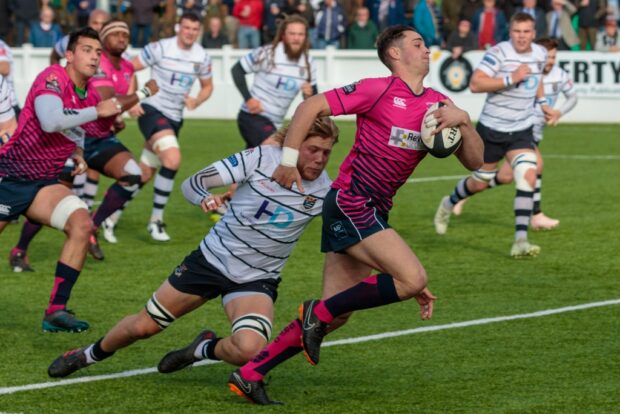
I think it’s a good idea to have a salary threshold but if you’ve got the money, I’d rather you spent it in rugby than go off and spend it somewhere else. But when you lose interest somewhere down the road, as people sometimes do, you have to leave that rugby club in a better condition than when you arrived.
If all you’ve done is spent money on players but the ladies’ toilets, changing rooms and general bar area are as tatty as they were when you got there, that’s unacceptable. We have got to get to a system whereby whatever money you’ve got, a substantial percentage of it has got to be spent on facilities to make the player and public experiences much more rewarding because that’s how our level of the game can grow.
We’ve got clubs in the Championship and the higher echelons of the National Leagues who have no covered accommodation, floodlights or decent facilities and I find that utterly bewildering. The RFU should have dealt with it 25 years ago.
A lot is being said about the RFU’s £28m-a-year deal with the Premiership and whether too much money is being directed there?
Personally, I don’t see any grassroots resentment against the Premiership. The Premiership is a fundamental piece of the professional rugby jigsaw and you can’t operate a top-flight club unless you adhere to certain standards of infrastructure and players – and these things do cost money.
The announcement of salary reductions by Premiership clubs shows an element of realism and this whole coronavirus episode has forced a lot of clubs to re-evaluate what we do financially and where we should be seen when we come out of the other side. If collectively the Premiership clubs are losing dozens of millions of pounds every year then that doesn’t make economic sense, but they’re re-evaluating their financial position, as is everyone else further down the food chain.
With global season talks ongoing, how would you view shifting the Six Nations to a March start instead of February?
If you’d asked me ten years ago, I’d have said the February/March axis was key. But I’ve changed my mind, you can play in March/April or April/May because there is a bigger piece at play here about the whole nature of the sport.
If the Six Nations is playing in March/April and there’s an October/November international window, how much more understandable would that be to the sporting public? I’d be happy for those windows to shift and as far as the Premiership is concerned, if you had big matches being played during the summer it would give community clubs an opportunity to open their doors and invite people to watch games on their big screens when otherwise they’d be shut. Community clubs could benefit hugely during the summer months.
Do you envisage the National Leagues switching to summer?
Short-term, I think it would stay in the winter, but in the longer-term it might suit the country’s younger players to play in better weather.
I remember playing so many games in bad weather and if we want kids to come and play the game, isn’t it better for them to come on Sunday mornings when it’s drier and warmer rather than drizzling and freezing?
Some kids love it, but others are just out there under duress and would rather be playing on their Xboxes. There are a lot of issues around summer rugby at community level but it’s a conversation we should probably have.
Finally, if you could have a further wish?
The game of rugby is built on trust where no one player can operate without another, so I’d love to see that trust reciprocated off the field between all the vested interests. If there’s a genuine collective will to better the game and all of us work to that end, it cannot help but benefit rugby as a whole. But it requires a lot of closed minds to open, with the global season being one of them. Nothing will happen as long as the game is bedevilled by intransigence and you have to compromise in the end – those people who don’t see that need to realise it quickly!


Latest News
Super Rugby Americas: Round Ten Review

British and Irish Lions
British and Irish Lions: Biggest winners and losers from Andy Farrell’s selection

















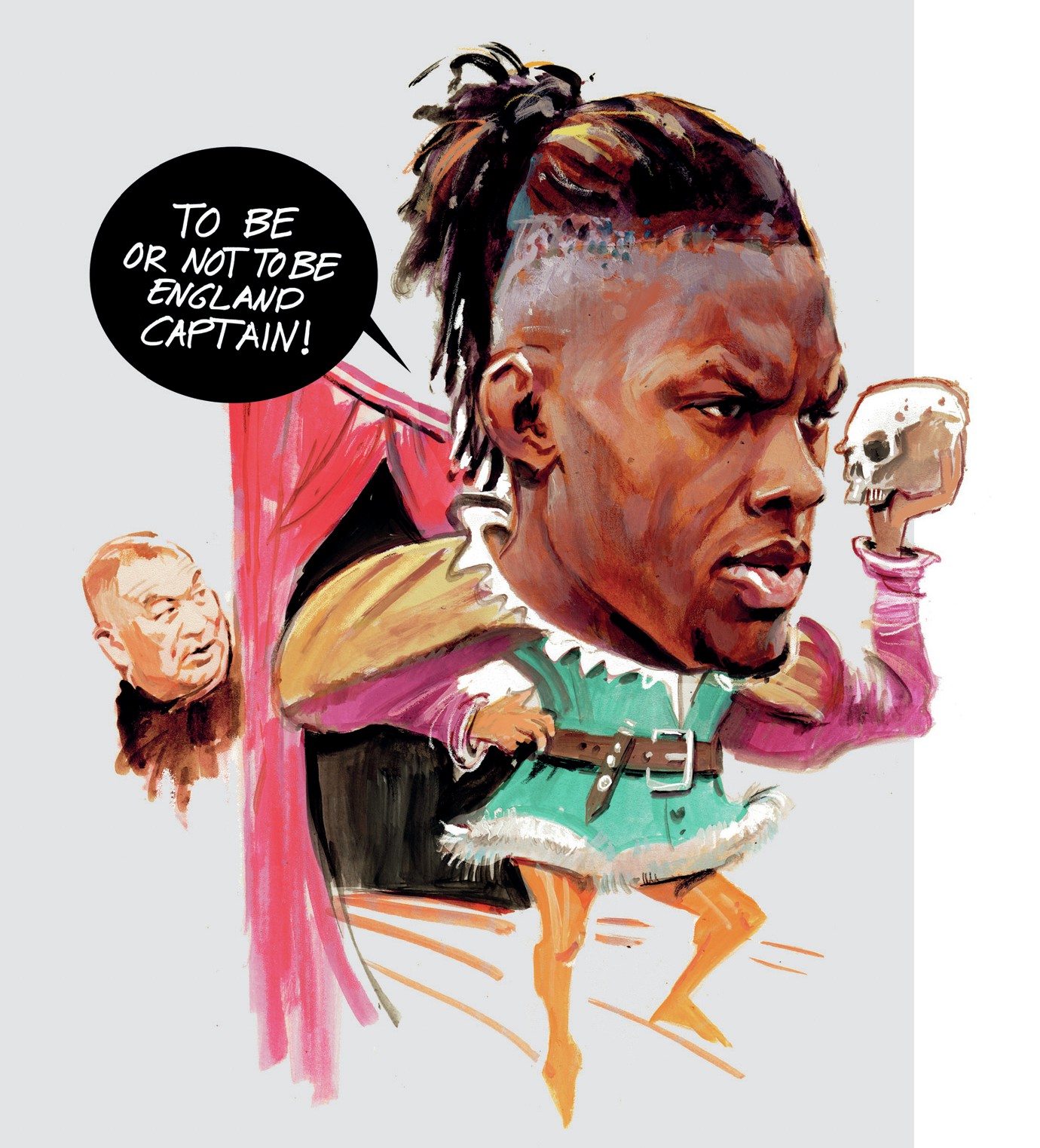

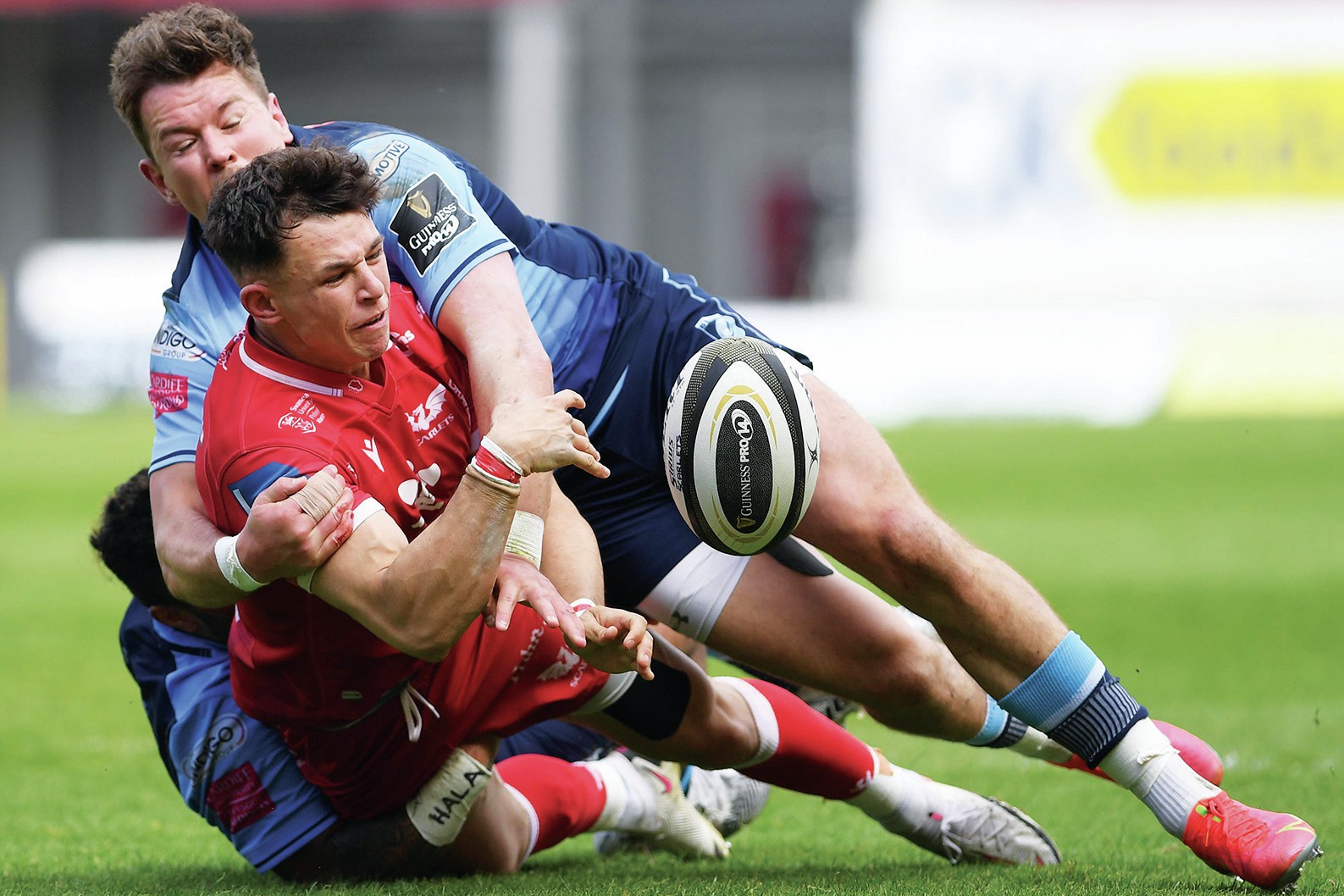
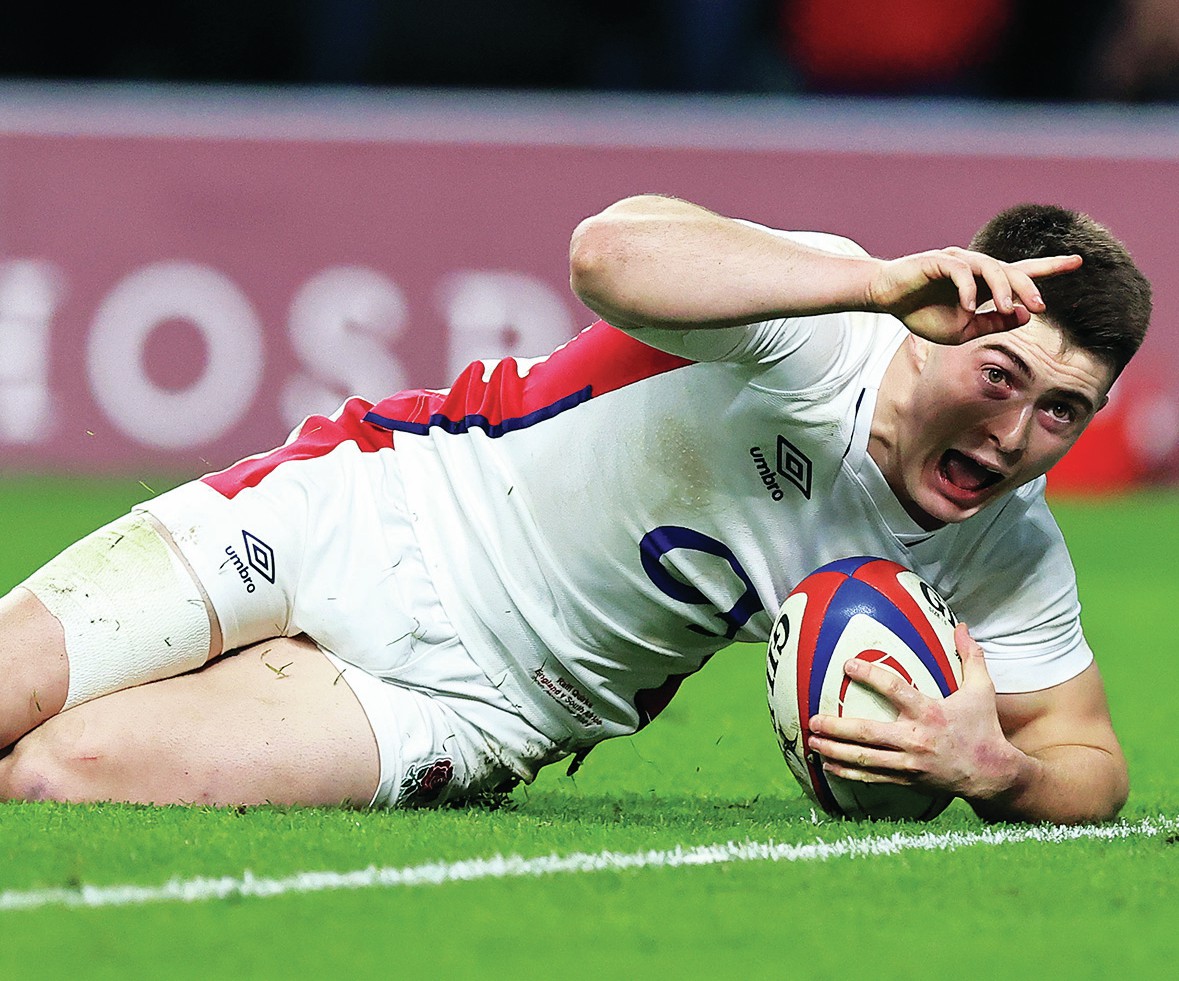
You must be logged in to post a comment Login